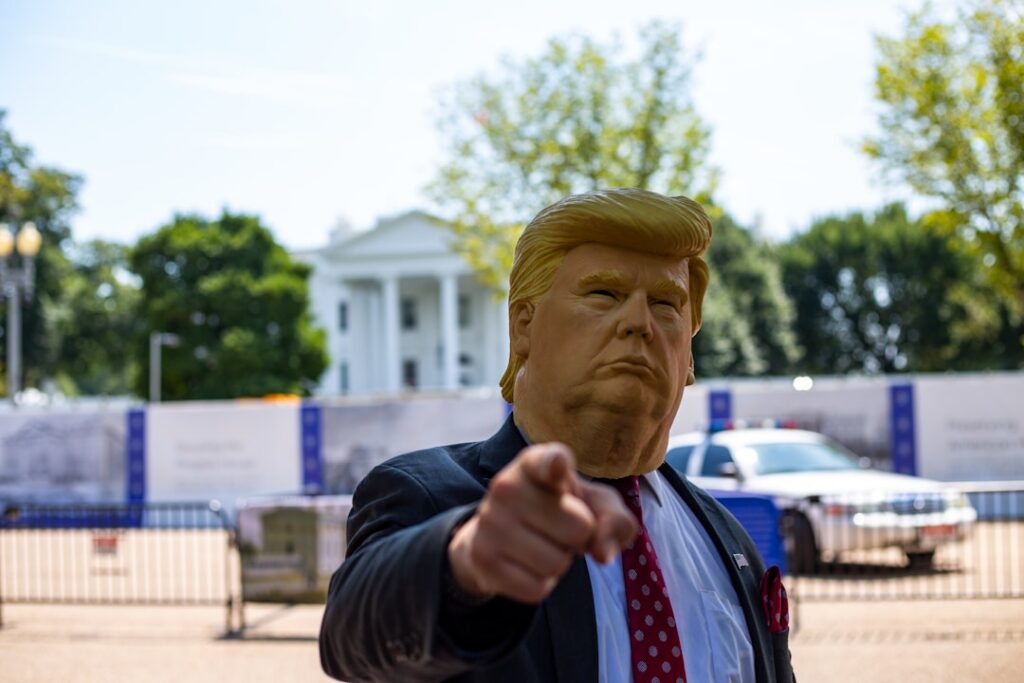Trump Calls for Arrest of Democratic Lawmakers Over Video
In a startling turn of events, former President Donald Trump has publicly called for the arrest of several Democratic lawmakers in response to a video they released. The video features six Democratic lawmakers urging the military to disobey illegal orders, which Trump described as “seditious behavior, punishable by DEATH!” This comment has ignited a heated debate about the implications of such statements on political discourse and military conduct. The White House has countered Trump’s claims, asserting that he has not issued any illegal orders himself and labeling the Democratic video as a “dangerous message” to the troops.
Quick Takeaways
- Trump’s remarks come in response to a video by Democratic lawmakers.
- The video encourages military personnel to disobey unlawful orders.
- Trump labels the behavior depicted in the video as seditious.
- The White House defends Trump, stating he hasn’t given illegal orders.
- Political analysts weigh in on the potential consequences of Trump’s statements.
- The situation raises questions about free speech and military loyalty.
Understanding the Context
To comprehend the gravity of Trump’s statement, it’s essential to look at the context in which it was made. The video in question was aimed at urging military personnel to prioritize constitutional orders over potentially unlawful directives. This is a significant topic given the increasing polarization in American politics.
What Does Seditious Behavior Mean?
Sedition refers to actions or speech inciting rebellion against the authority of a state. Trump’s use of the term reflects his heightened response to perceived threats against his administration and the military.
The Role of the Military in Politics
The military is traditionally viewed as a non-partisan entity. The call for military personnel to disobey orders can blur the lines between military duty and political allegiance.
The Implications of Trump’s Statement
By calling for the arrest of lawmakers, Trump is raising questions about the limits of political rhetoric and the potential consequences for elected officials who speak out against the government.
Reactions from Democratic Lawmakers
Democratic lawmakers have responded by defending their right to criticize the government and express their views on military matters. They argue that their actions are a vital part of holding the government accountable.
Public Sentiment on the Issue
Public opinion is divided, with some supporting Trump’s hardline stance and others decrying it as an attack on free speech. This division reflects the broader polarization seen in contemporary American society.
Media Coverage and Analysis
Media outlets have provided varying interpretations of Trump’s comments, with some framing it as a dangerous escalation in political rhetoric, while others see it as a necessary defense of military integrity.
Legal Perspectives on Seditious Behavior
Legally, determining what constitutes seditious behavior can be complex. Trump’s comments may face scrutiny in light of First Amendment protections for free speech.
Comparisons to Historical Events
Historically, calls for arresting political opponents have often led to significant backlash and discussions about civil rights, making this situation particularly noteworthy.
The Role of Social Media
Social media platforms have played a significant role in amplifying both Trump’s comments and the Democratic response, shaping public discourse around the issue.
Potential Consequences for Lawmakers
Lawmakers may face increased scrutiny and pressure, not only from their constituents but also from political opponents, following Trump’s remarks.
Analyzing Trump’s Leadership Style
Trump’s approach to leadership often involves dramatic statements that capture public attention, reflecting a style that prioritizes direct confrontation.
Future Implications for Political Discourse
This incident may set a precedent for future interactions between politicians and the military, influencing how such discussions are framed moving forward.
Understanding Free Speech Challenges
The balance between free speech and responsible communication remains a contentious issue in American politics, particularly in times of extreme division.
Conclusion and Reflection
Trump’s call for the arrest of Democratic lawmakers marks a significant moment in American political discourse, highlighting tensions surrounding military loyalty, free speech, and the consequences of political rhetoric. As debates continue, it’s crucial to consider the ramifications of such statements on both the political landscape and the integrity of democratic institutions. The reactions from various stakeholders will undoubtedly shape the narrative moving forward, as citizens and lawmakers alike navigate the complexities of a divided political climate.
Related Resources
Frequently Asked Questions
- What did Trump say about the Democratic lawmakers’ video?
- Why did Trump describe the video as seditious?
- What is the White House’s stance on Trump’s remarks?
- How are lawmakers reacting to Trump’s call for arrest?
- What are the implications of this situation for military personnel?
- How does this incident reflect on free speech in politics?
- What historical comparisons can be made regarding calls to arrest politicians?
- What are the potential legal ramifications of Trump’s comments?
Photo by Darren Halstead on Unsplash
